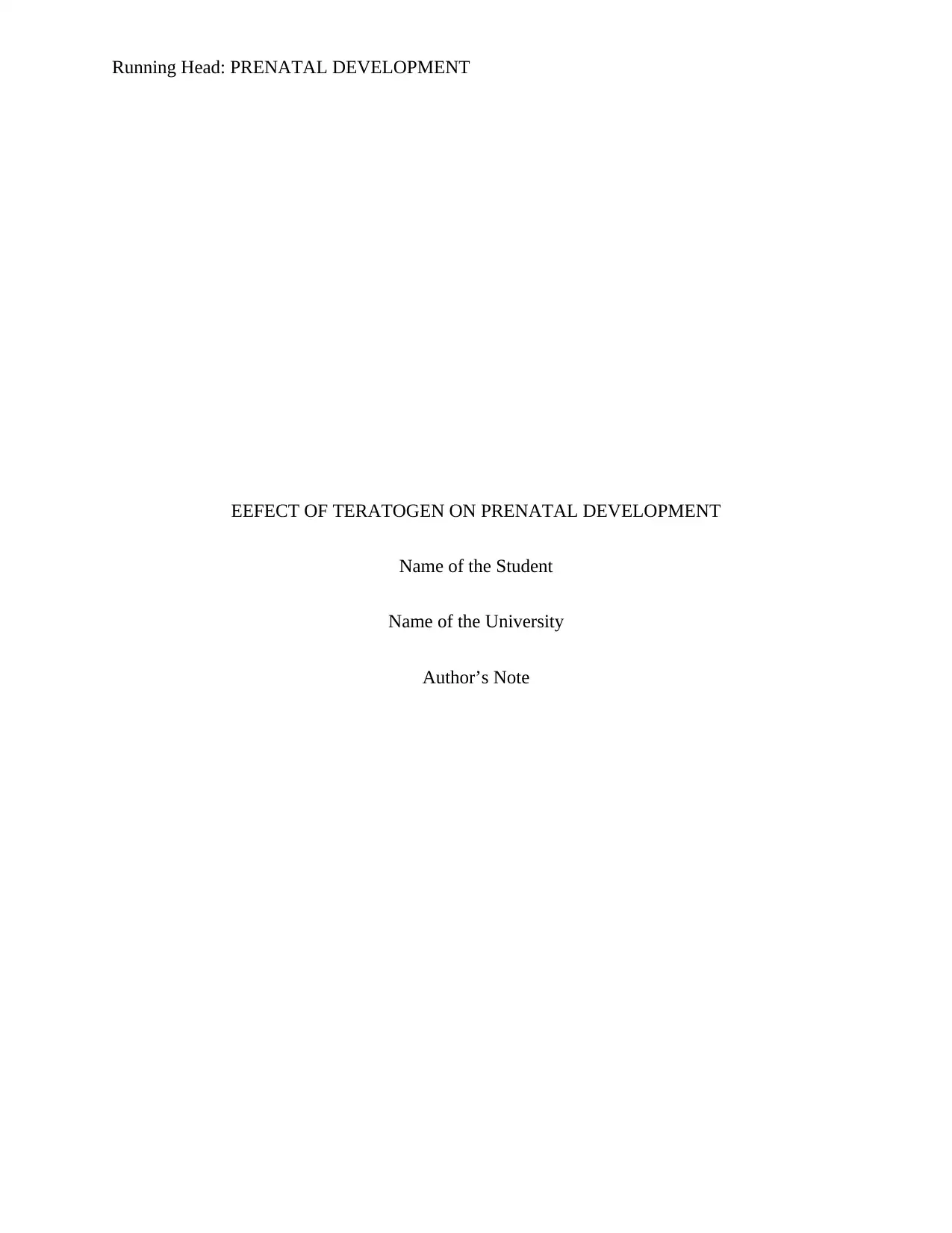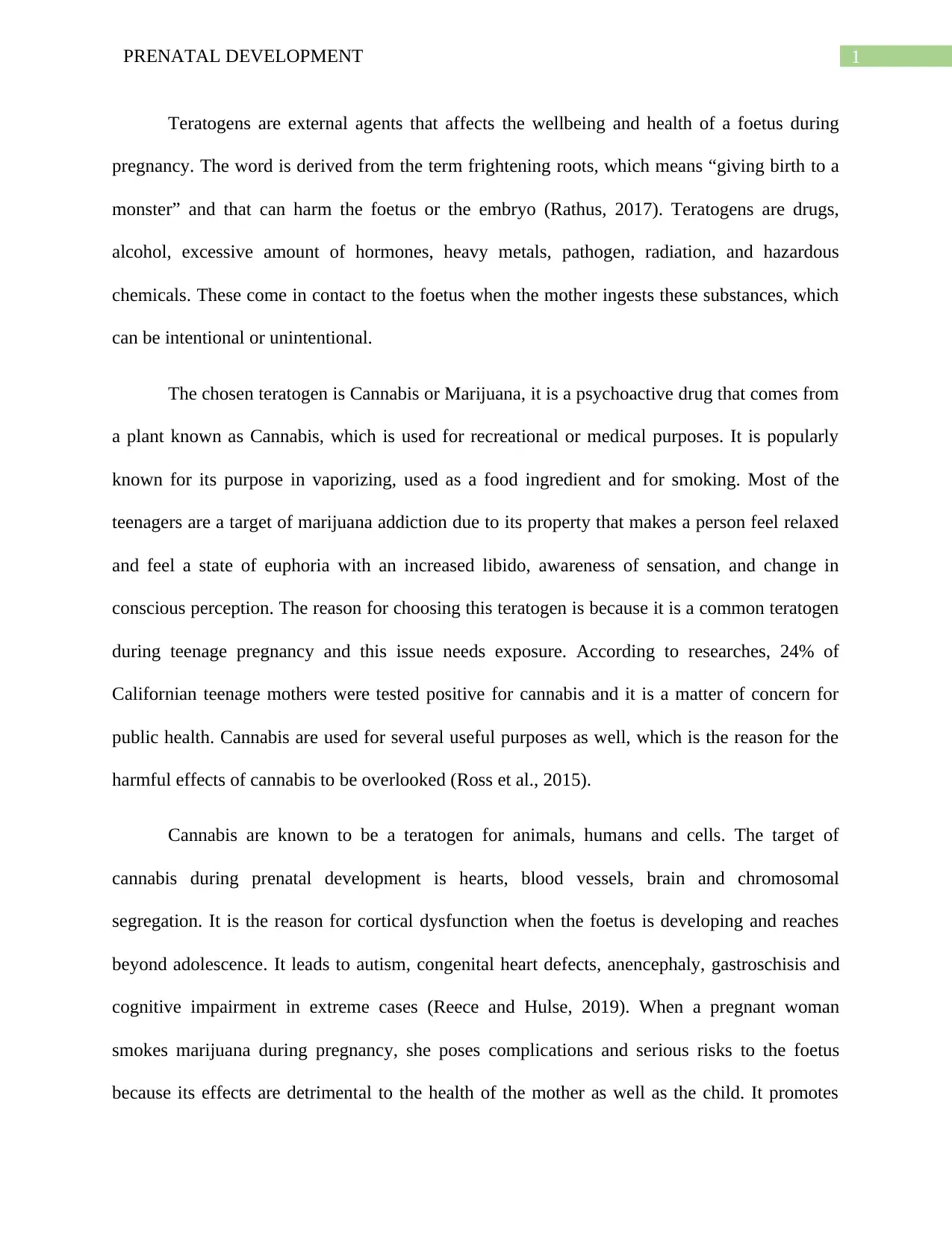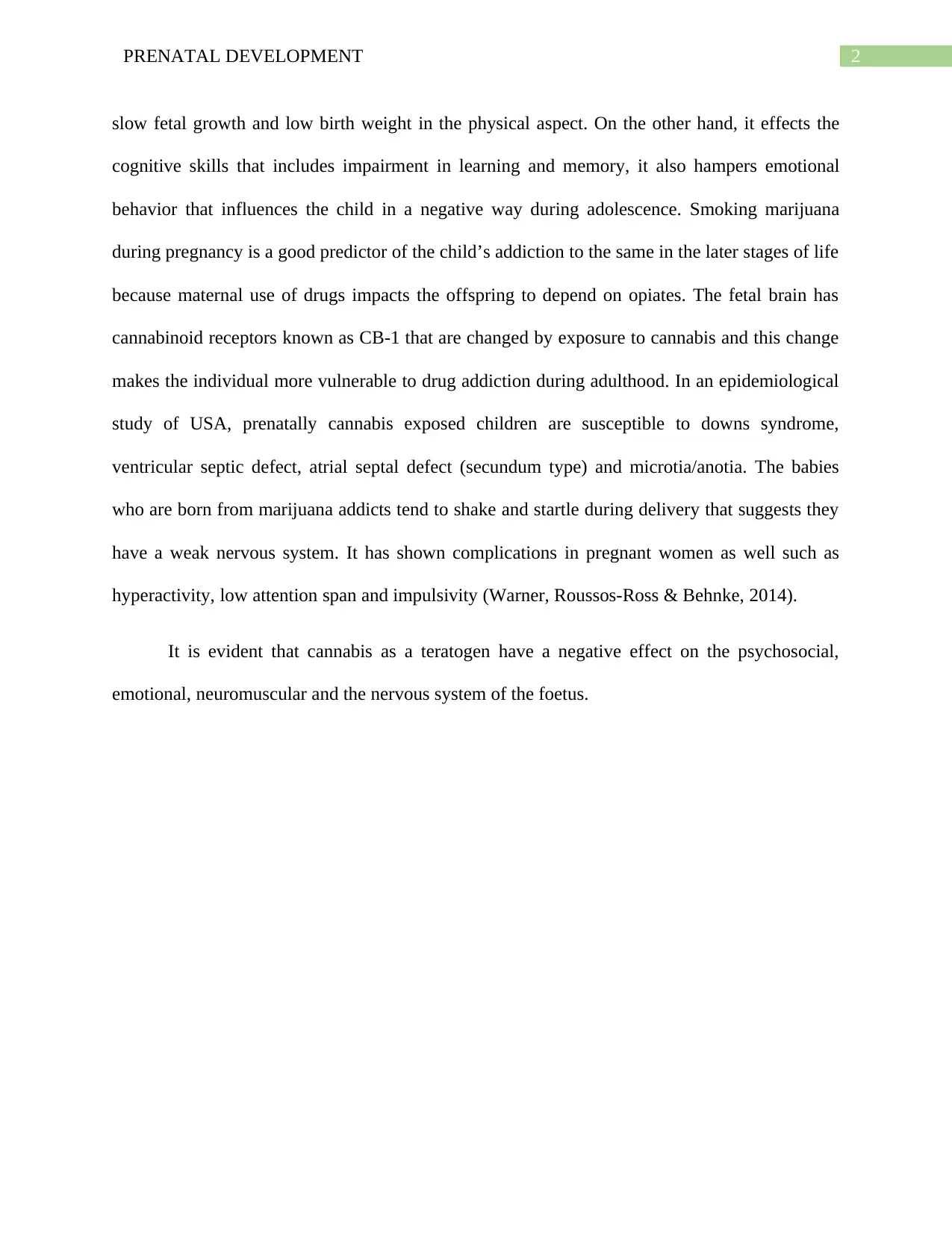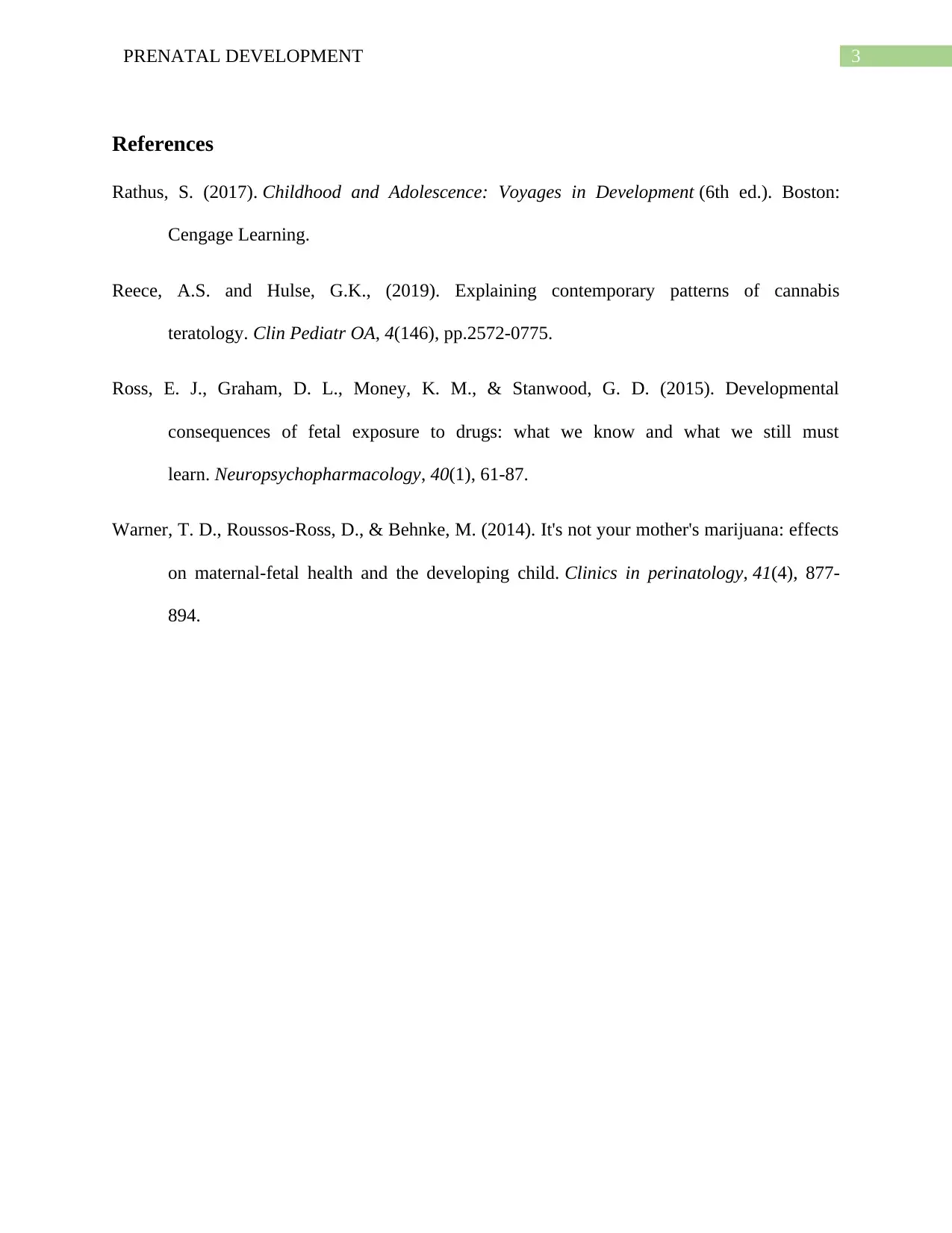Prenatal Development and Teratogens: Cannabis Impact Analysis
VerifiedAdded on 2022/08/21
|4
|777
|11
Report
AI Summary
This report examines the impact of cannabis, a psychoactive drug, as a teratogen on prenatal development. The student chose cannabis due to its prevalence in teenage pregnancies and potential for overlooking its harmful effects. The report highlights cannabis's detrimental effects on fetal development, including potential for autism, congenital heart defects, cognitive impairments, and low birth weight. It also discusses the increased risk of addiction in offspring exposed to cannabis in utero, as well as potential complications for pregnant women. The report references several studies, including the study which highlighted the potential for various health complications in children exposed to cannabis prenatally, such as Down syndrome and ventricular septal defect, and emphasizes the negative impact of cannabis on the psychosocial, emotional, neuromuscular, and nervous systems of the fetus.
1 out of 4











![[object Object]](/_next/static/media/star-bottom.7253800d.svg)